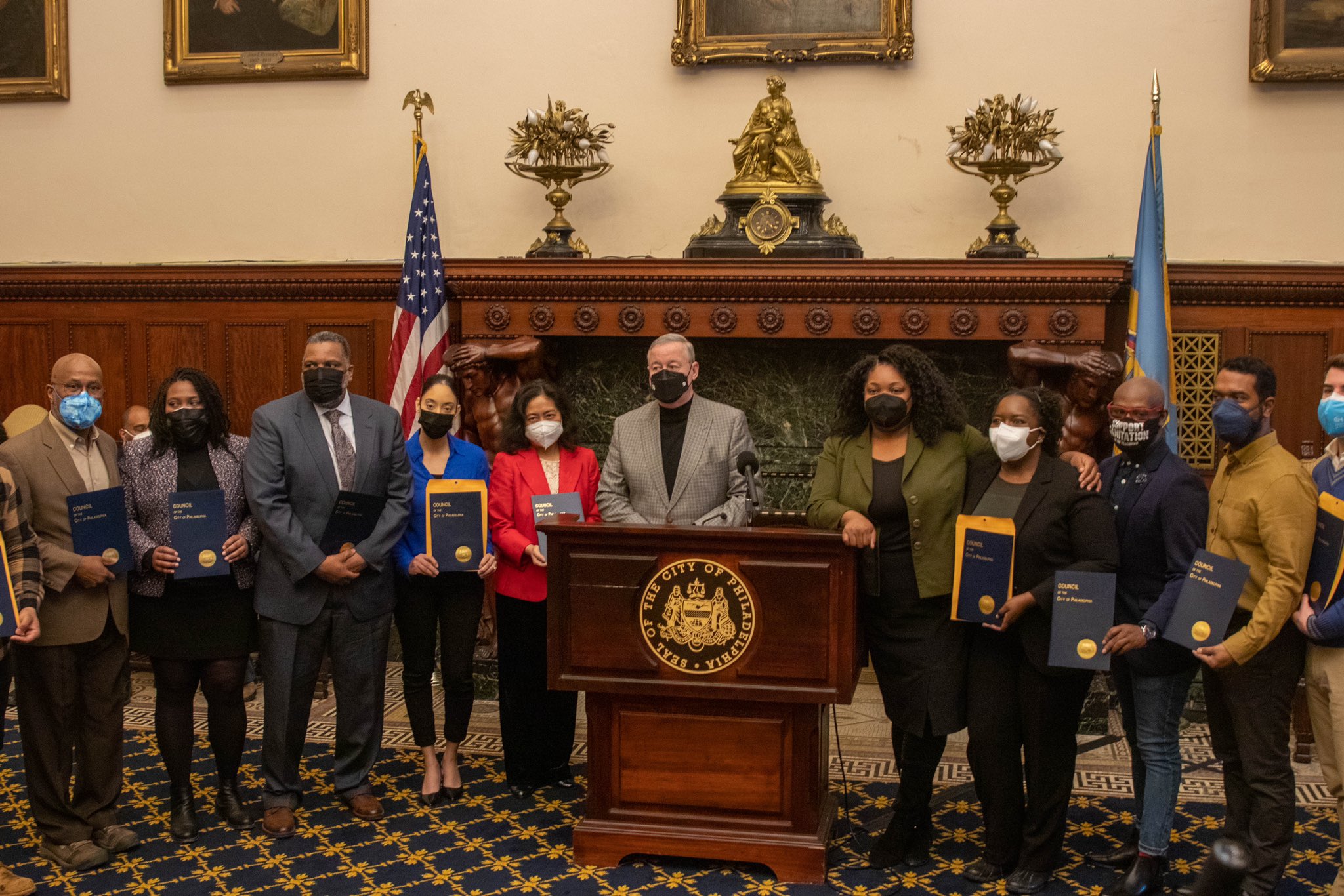
Meet Philly’s first environmental justice advisors
The committee, announced on Feb. 2, will work to address a number of environmental injustices and make recommendations to city leaders.
On Wednesday, Feb. 2, Philadelphia’s first Environmental Justice Advisory Committee announced the 17 city residents that will work to address injustices such as extreme heat, flooding and air pollution.
The group is tasked with making informed recommendations to the mayor, City Council, and city agencies to examine, report on and address environmental justice issues. Members will serve two-year terms and be compensated with $240 annually.
City officials recognize that the city’s low-income communities and communities of color are disproportionately impacted by climate change, leading to higher rates of asthma, cardiovascular disease, and premature deaths. Officials say this is partially due to the city’s industrial past, in addition to racist practices like redlining.
Meet Philly’s new environmental justice advisory group.
— WHYY News (@WHYYNews) February 2, 2022
They'll help push the city to address issues like extreme heat and air pollution.@tough_schmidt_ reports. https://t.co/kPEqGtwXw4
“With the establishment of the Environmental Justice Advisory Commission, the Interagency Working Group on Environmental Justice, and a community resilience and environmental justice grant fund, I am proud that our city is taking concrete steps towards addressing the injustices of the past and creating a more resilient future,” Mayor Jim Kenney said in a press release.
One of the members, Kermit O, a West Philly native, is a former teacher and self described “school abolitionist,” and focuses on the intersection of climate, land, and food. He now serves on the city’s Food Policy Advisory Council and coordinates Philly STEM Education for Sustainability, a program that works with high schools to develop student-led sustainability projects.
O knows there is potential for solutions through pursuing environmental justice, and that it could reduce violence.
“If you didn’t build bus depots and LNG plants in Black neighborhoods and they weren’t dying from higher asthma rates, people would be more feeling like, ‘Oh, I have, literally, the room to breathe and think about these long-term issues,” he told WHYY News.
O said the key to the commission’s success will be City Council and city agencies drafting policies based on the suggestions the group makes and getting their approval before moving forward.
Member Syreeta Thomas, another educator, is a middle school science teacher in Strawberry Mansion — an area that is no stranger to environmental inequities.
Thomas feels that the way environmental burdens fall largely on communities of color is “almost a crime.”
With this new Commission we are taking another step closer to creating a whole government approach to addressing environmental injustice!
— CouncilmemberKGR (@CouncilwomanKGR) February 2, 2022
Read more about the new Environmental Justice Advisory Commission (EJAC) ⬇️ https://t.co/z2JS0Sf2gK
Thomas said that many members of her community have normalized the negative impacts of climate change, such as multiple family members having asthma or many people having developmental disabilities from lead poisoning.
RELATED CONTENT
“It’s not supposed to be normal,” Thomas told WHYY.
Thomas hopes the commission can help residents navigate the “web” of city officials whose work touches environmental issues.
Twenty-four-year-old North Philly resident Tyler Ray, is a neighborhood organizer at Urban Creators, and a full-time community development and historic preservation student at Temple University.
Ray told WHYY that he began to realize the harsh reality of environmental justice when he was in high school and started exploring areas outside of his majority-Black neighborhood.
“I knew a lot of people who had medical issues. I’ve known people that had hypertension, that had kidney disease, heart disease, diabetes, anything — you name it. But when I was younger, I viewed that as normal,” he said.
Through the city’s new commission, Ray intends to advocate for more green space preservation to address food insecurity as well as alleviate the dangerous disparities in summer temperatures that can be as much as 22 degrees between neighborhoods.
1 of 17‼️ Yesterday I was honored to be announced as a member of Philadelphia’s first Environmental Justice Advisory Commission. My fellow commissioners and I are excited to ignite real change in Philly. Who knew this was Gods plan for my life 🙏🏾 Change is here, Change is now💪🏾✊🏾 pic.twitter.com/XWXJTdbT8P
— Ya Fav Trashman (@YaFavTrashman) February 3, 2022
And despite being a member of the Republican party, which has historically resisted action on this issue, Ray doesn’t see environmental justice as a partisan issue.
“As a human, as someone who cares about my neighborhood, I can’t choose to make that a partisan issue. It’s a realistic issue. Climate change is a thing, and we need to confront it,” Ray said.
The remaining 14 members of the commission include lawyers, a doctor and a sanitation worker-turned-activist. The full list of members can be found here.











LEAVE A COMMENT:
Join the discussion! Leave a comment.